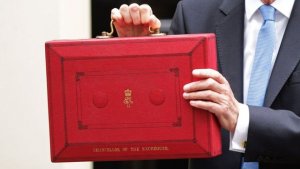- Tax & Estate Planning

Shorter Reads
Can I gift my holiday home or rental property to my children
Gifting a second home or a rental property to your children can be a great way to pass an asset down a generation in a tax efficient way. However, there are number of points that you will need to be aware of before transferring a property to them.
2 minute read
Published 24 January 2022
Key information
- Specialisms
- Private Wealth
- Services
- Tax & Estate Planning
Transferring ownership of property from parent to child in the UK
The principal tax to consider when making gifts is inheritance tax (IHT). The gift of a property will be a ‘potentially exempt transfer’. If you survive the gift for seven years, you will escape paying IHT on it, but if you were to die within the seven years, the gift will be taxable at 40% (with the potential tax liability tapering down after three years).
If you give away property to your children but continue to derive some benefit or enjoyment from it, then this may be deemed a “gift with reservation of benefit” (GROB). The result of this is that the whole of the property will be treated as remaining within your estate for IHT purposes and taxed at 40% on your death notwithstanding the fact that you no longer own it.
A GROB can be avoided if the donor (i.e. the parent) pays market rent to the donee (i.e. the child or children) for their occupation and enjoyment of the gifted property. However, this may be unattractive from a cash flow perspective.
However, there is a potential way through the minefield which makes use of specific exceptions to the GROB rules. The first is that you could pay a market rent to your children for your occupation and enjoyment of the gifted property. However, this may be unattractive from a cash flow perspective. Alternatively, there are exceptions that apply to gifts of a share in land where you either: (i) do not occupy the land, or (ii) occupy the land along with your children and do not receive any benefit which is provided by or at their expense.
Practically speaking, there are several ways to take advantage of these exceptions. In the case of a rental property, you will likely not occupy it and so you can give away a share, say 75%, to your children but could continue to receive some or all of the rent without being subject to the GROB rules for as long as the property continues to be commercially let. As a general rule, rent will be due to you and your children in proportion to your respective ownership of the property. However, if you depend on the rental income, you could separately agree with your children as co-owners that you will continue to receive all the rent without affecting the IHT position.
For a holiday home which is occupied to some extent by the whole family, there is no GROB as long as you do not receive any benefit from the property at your children’s expense. This means that you should share any outgoings (e.g. bills, mortgage payments, council tax etc.) at least pro-rata to ensure that your children do not pay more than their fair share, as this would constitute a benefit to you. Alternatively, if you are feeling especially generous, you could choose to continue paying all the expenses.
While this planning may be effective in reducing your estate for IHT purposes, any gift will be subject to CGT at up to 28%. This is a lower rate of tax, currently, than IHT on death but is payable immediately. There may also be stamp duty to pay on the gift if the property is mortgaged.
Ultimately, any decision on gifting your holiday home or rental property will involve carefully weighing up the potential tax charges as well as considering your future intentions as regards to the property. We would always suggest you take legal advice on your specific circumstances before making any large gifts.
Read our latest article in the Lifetime Giving series: What gifting options do non-domiciliaries have?
Related content
Shorter Reads
Can I gift my holiday home or rental property to my children
Gifting a second home or a rental property to your children can be a great way to pass an asset down a generation in a tax efficient way. However, there are number of points that you will need to be aware of before transferring a property to them.
Published 24 January 2022
Associated sectors / services
Authors
Transferring ownership of property from parent to child in the UK
The principal tax to consider when making gifts is inheritance tax (IHT). The gift of a property will be a ‘potentially exempt transfer’. If you survive the gift for seven years, you will escape paying IHT on it, but if you were to die within the seven years, the gift will be taxable at 40% (with the potential tax liability tapering down after three years).
If you give away property to your children but continue to derive some benefit or enjoyment from it, then this may be deemed a “gift with reservation of benefit” (GROB). The result of this is that the whole of the property will be treated as remaining within your estate for IHT purposes and taxed at 40% on your death notwithstanding the fact that you no longer own it.
A GROB can be avoided if the donor (i.e. the parent) pays market rent to the donee (i.e. the child or children) for their occupation and enjoyment of the gifted property. However, this may be unattractive from a cash flow perspective.
However, there is a potential way through the minefield which makes use of specific exceptions to the GROB rules. The first is that you could pay a market rent to your children for your occupation and enjoyment of the gifted property. However, this may be unattractive from a cash flow perspective. Alternatively, there are exceptions that apply to gifts of a share in land where you either: (i) do not occupy the land, or (ii) occupy the land along with your children and do not receive any benefit which is provided by or at their expense.
Practically speaking, there are several ways to take advantage of these exceptions. In the case of a rental property, you will likely not occupy it and so you can give away a share, say 75%, to your children but could continue to receive some or all of the rent without being subject to the GROB rules for as long as the property continues to be commercially let. As a general rule, rent will be due to you and your children in proportion to your respective ownership of the property. However, if you depend on the rental income, you could separately agree with your children as co-owners that you will continue to receive all the rent without affecting the IHT position.
For a holiday home which is occupied to some extent by the whole family, there is no GROB as long as you do not receive any benefit from the property at your children’s expense. This means that you should share any outgoings (e.g. bills, mortgage payments, council tax etc.) at least pro-rata to ensure that your children do not pay more than their fair share, as this would constitute a benefit to you. Alternatively, if you are feeling especially generous, you could choose to continue paying all the expenses.
While this planning may be effective in reducing your estate for IHT purposes, any gift will be subject to CGT at up to 28%. This is a lower rate of tax, currently, than IHT on death but is payable immediately. There may also be stamp duty to pay on the gift if the property is mortgaged.
Ultimately, any decision on gifting your holiday home or rental property will involve carefully weighing up the potential tax charges as well as considering your future intentions as regards to the property. We would always suggest you take legal advice on your specific circumstances before making any large gifts.
Read our latest article in the Lifetime Giving series: What gifting options do non-domiciliaries have?
Associated sectors / services
- Tax & Estate Planning
Authors
Need some more information? Make an enquiry below.
Subscribe
Please add your details and your areas of interest below
Article contributors
Daniel
SimonSenior Partner
Specialising in International trusts, tax & estate planning, Family offices, Firm management, Private wealth, UK trusts, tax & estate planning and US/UK Tax & estate planningPeter
DanielPartner - Head of Private Wealth
Specialising in UK trusts, tax & estate planning, International trusts, tax & estate planning, Private wealth, Probate and US/UK Tax & estate planning
Enjoy reading our articles? why not subscribe to notifications so you’ll never miss one?
Subscribe to our articlesMessage us on WhatsApp (calling not available)
Please note that Collyer Bristow provides this service during office hours for general information and enquiries only and that no legal or other professional advice will be provided over the WhatsApp platform. Please also note that if you choose to use this platform your personal data is likely to be processed outside the UK and EEA, including in the US. Appropriate legal or other professional opinion should be taken before taking or omitting to take any action in respect of any specific problem. Collyer Bristow LLP accepts no liability for any loss or damage which may arise from reliance on information provided. All information will be deleted immediately upon completion of a conversation.
Close















































































